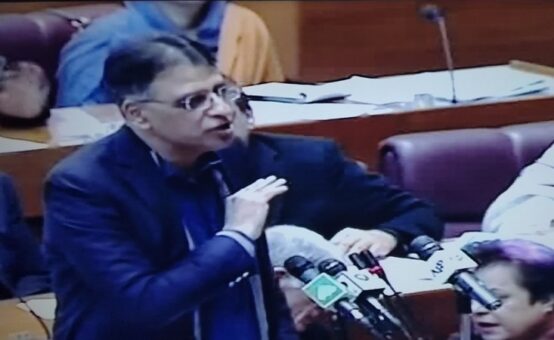The Economic Coordination Committee (ECC) of the Cabinet, under the leadership of Finance Minister Asad Umar, approved the raising of an Islamic Term Finance Facility amounting to Rs200 billion to tackle circular debt issue.
The decision was taken during a meeting held on Tuesday, where the Ministry of Energy, Power Division presented a comprehensive overview of the current circular debt situation and its contributing factors.
The Ministry’s presentation outlined the various components that have led to the accumulation of circular debt, shedding light on the complexities of the issue. Following a thorough discussion, the ECC granted permission for the Ministry to move forward with the syndicated Islamic Term Finance Facility, for which a term sheet had already been received from a Consortium of Islamic Banks.
Circular debt has been a longstanding concern for the Pakistani economy, affecting the energy sector and hindering its growth. The approval of the Rs200 billion financing facility reflects the government’s commitment to finding sustainable solutions to this pressing problem.
In addition to addressing the circular debt issue, the ECC also greenlit the Ministry of National Food Security’s proposal to export 0.5 million tons of surplus wheat and wheat products through the Pakistan Agricultural Storage and Services Corporation (PASSCO). The decision was made in light of the increasing prices of wheat in the international markets, coupled with the availability of substantial stocks (1.7 million tons) and optimistic predictions for a good crop in the current season.
This move is expected to not only contribute to the stability of the domestic wheat market but also leverage the surplus to generate revenue through exports. It aligns with the government’s strategy to capitalize on favorable market conditions and strengthen the country’s economic position.
Furthermore, the meeting included a briefing from the Ministry of Information Technology and Telecommunications (ITT) on the annual budget of the National Telecommunication Corporation (NTC). Following the presentation, the ECC directed the Ministry of ITT to prioritize addressing the management issues within the NTC. Members of the ECC expressed dissatisfaction with the responses provided to their queries and emphasized the need for prompt and effective resolutions to enhance the performance of the NTC.
The decisions made during this ECC meeting underscore the government’s proactive approach to economic challenges, demonstrating a commitment to resolving critical issues and fostering economic stability. The approval of the Islamic Term Finance Facility and the wheat export initiative reflects a strategic and comprehensive approach to economic management in Pakistan. The government remains focused on implementing measures that will have a positive impact on the economy and address the concerns of various sectors.
